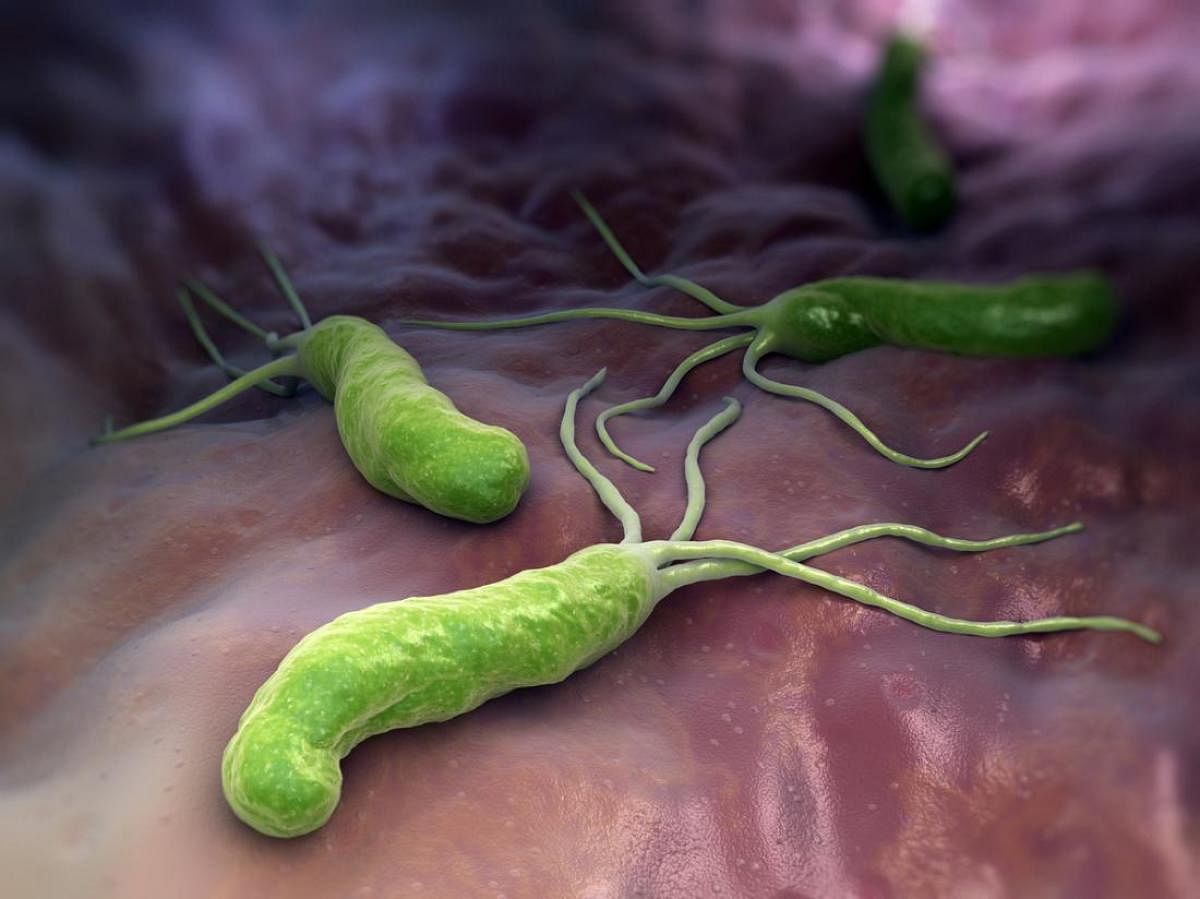
A cancer-causing bacterium living in the human stomach has been found to have attained immunity to three common antibiotics, a new study has found.
Helicobacter pylori is well-known for its capacity to cause gastric ulcers and gastritis. If it goes untreated, however, it is also known to cause stomach cancer.
A team of researchers led by Dr Mamta Ballal, head of enteric diseases division at the Kasturba Medical College (KMC), discovered the bacterium had gained immunity to several antibiotics.
“The initial finding was made two years ago when we were informed about a group of patients who were not responding to antibiotic treatment,” she said and credited one of her PhD students, Dr Vignesh Shetty, with making the discovery.
Tissue was collected from 180 patients admitted at the college who had been found positive for Helicobacter infection. A data breakdown showed the patients came from nine state districts, primarily in north Karnataka. Strains were collected through a biopsy from 113 patients, which were then pitted against a battery of five commonly used antibiotics.
The results were stark. 14% of strains were resistant to all the tested antibiotics, including metronidazole, levofloxacin and clarithromycin, amoxicillin and tetracycline. A further 59.3% were resistant to one antibiotic while 86% were resistant to metronidazole, levofloxacin and clarithromycin.
“For now, amoxicillin and tetracycline work in a majority of the cases but hospitals must ensure they are not blindly subjecting patients with Helicobacter with antibiotics,” Dr Ballal explained.
The working group at KMC has planned to develop a rapid kit for detection of drug resistance in bacteria, which would help clinicians modulate a treatment regimen.
The finding was the result of the joint collaboration of KMC and the Marshall Centre at The University of Western Australia. The KMC scientists were Dr Mamatha Ballal (Team Lead), Dr Vignesh Shetty, Dr Ganesh Pai, Dr Ramachandra L, Dr Shiran Shetty, while the UWA scientists were Dr Alfred Tay, Dr Eng Guan Chua and Mr Binit Lamichhane.
The study was published in the journal Gut Pathogens in June 2019.